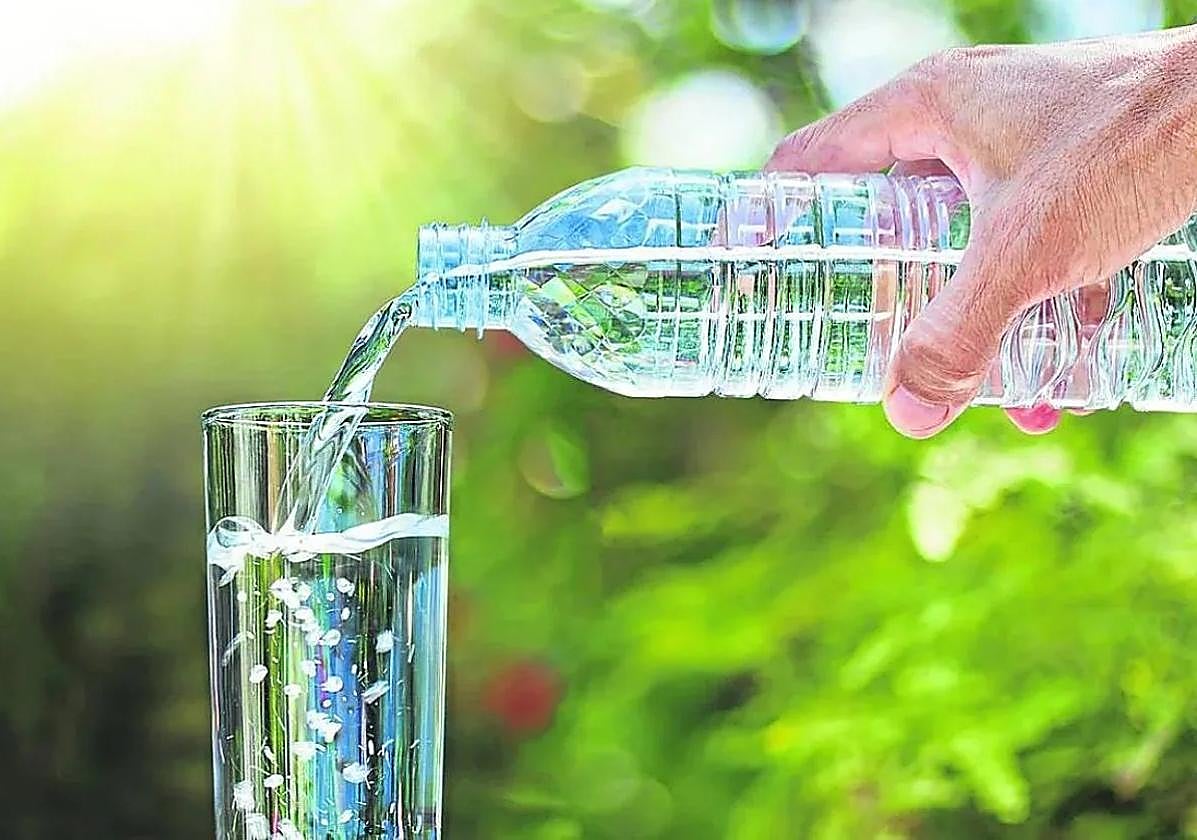The real danger of bottled water
The fact that experts keep pointing out that there is no reason for most of the population in Spain to drink bottled water has not stopped the business from growing
We can go for weeks without food, but 24 to 48 hours without water can be fatal. Our body composition speaks for itself as it is made up of approximately 70% of this liquid. Everything inside depends on water. Our cells are tiny islands surrounded by water, cytoplasm and interstitial fluid. All our metabolism takes place in an aqueous environment and what we need also moves in liquids whose main component is water (blood and lymph (the colourless fluid containing white blood cells)).
So, even this briefest of explanations of the importance of water to our bodies allows us to appreciate the need for proper hydration. Placing the true importance of water in our lives is especially necessary in the context of climate change, where summers are becoming endless and record-breaking temperatures are only a limit that is continually exceeded.
A study led by the Barcelona Institute for Global Health and published in the journal Nature Medicine estimates that between 30 May and 4 September 2022 there were 61,672 heat-attributable deaths in Europe. In absolute terms, the country with the highest number of heat-attributable deaths over the entire summer of 2022 was Italy, with a total of 18,010 deaths, followed by Spain (11,324) and Germany (8,173). These figures speak volumes about the magnitude of the problem.
We need a lot of water
The two-litre-a-day myth may have some validity, but it must be tailored to the individual's weight, activity, temperature and the humidity. The two litres should never include replenishment fluid after exercise. This would be extra and it would be good to anticipate and not wait until you feel thirsty. The latter is especially important in infants and the elderly who may not perceive this sensation clearly and thus become dehydrated more easily. A good indication would be the colour of your urine. The kidney is one of the organs that uses the most water for its detoxification work and is where you can first notice that the body is in saving mode. So we should be avoiding passing only a little urine that is more darkly coloured due to lack of water.
The real danger of bottled water
For many years, attempts have been made to convey to the public the idea that tap water is not a healthy option. This is particularly true in coastal towns and cities. It is true that salinised aquifers abound and that, in the past and in some areas, the tap water tasted really bad. But these circumstances, in most of Spain, have improved considerably and today we have one of the best drinking water networks in the world with hundreds of technicians who analyse its composition on a daily basis.
The fact that experts keep pointing out that there is no reason for the normal population to drink bottled water has not stopped the water-bottling business from growing. It doesn't matter that it is at least 100 times more expensive than tap water, that there is a clear environmental cost in the production of plastic for so much bottling and that it is a real hassle to transport it from the supermarket to the home. In addition, a much higher content of microplastics has been discovered in bottled water and there is no study confirming the superior quality of bottled to tap water. Even the myth that hard water causes kidney stones has been disproved by the Spanish Association of Urology itself.
It seems that the well-established marketing of bottled water sweeps aside the scientific evidence and this is where the problem lies, because many people refuse to drink water that is not bottled and this can limit intake. Yes, the real problem is not getting to drink the amount of water our bodies really need. Whether it's because we don't have it at home, or because of the cost, or maybe we don't have a shop nearby, many people reduce their water consumption when they have no bottled water. This is something that can be a real problem for our bodily functions or be directly related to the cases of heat stroke or dehydration that occur in summer.
Water is also eaten
We have already talked about the importance of drinking the right amount of water, which the World Health Organization (WHO) puts at one litre for every 35 kilos of body weight, although we know that this rule of thumb can vary.
To achieve this amount we have an important ally in the form of the water contained in food. It is therefore a good idea to know some of the most hydrating foods that we should be eating:
- Fruits: Melon, watermelon, apple or peach. They have over 90% water content and are full of minerals, vitamins and antioxidants. It is a myth that they should not be eaten at night.
- Tomato: One of the stars of summer, full of lycopene, vitamins C, K and A, zinc, iron and potassium, as well as an enormous capacity for hydration.
- Infusions: Almost 100% water with a multitude of polyphenols such as green tea or digestive properties such as ginger.
- Milk: Its lactose, protein and fat content delays gastric emptying, making it a more hydrating drink than water, according to studies by St Andrews University in Scotland.
- Lettuce, chard, spinach or cucumber: Over 95% water and with a great versatility to fill our dishes with greens and freshness.

